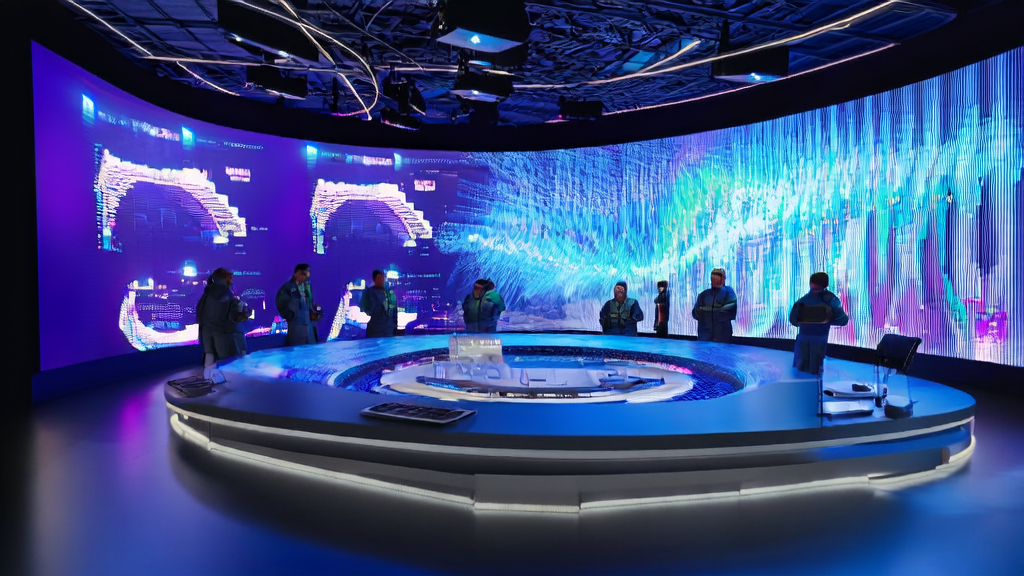AI-Driven Ad Optimization: Lowering CPA and Improving Conversion Rates
In the increasingly competitive digital marketing landscape, businesses prioritize obtaining high-quality customers with effective ad spending. This article examines the role of AI in improving ad targeting by optimizing投放策略, minimizing cost per acquisition, driving higher ROI, and maximizing the effectiveness of paid ads.

Applications of AI Technologies in Advertising Optimization
The implementation of AI technology within advertising strategies is now standard practice, notably for precise target ad delivery. Leveraging advanced algorithms, companies can refine their ad positioning and target audiences accurately while increasing click-throughs and conversion. Tech giants such as Facebook and Google already utilize vast data streams analyzed through artificial intelligence. Despite this widespread use, Mr. Wang Xingxun has noted that AI in advertising remains nascent, falling short of fully developed "embodied intelligence," indicating immense untapped potential in advertising efficacy.
How AI Algorithms Improve Campaign Efficiency
Machine learning systems interpret behavioral patterns like user history, preferences, and buying trends to predict click-through probability precisely, allowing brands to optimize ad placements more intelligently. Such advancements in ad spend allocation lead to increased return on investment and higher conversion metrics. For example, AI can tweak visuals in real time depending on engagement insights or browsing history. These refinements enhance engagement by making each advertisement more appealing to its respective demographic—resulting in a marked drop in CPA for advertisers. Mr. Wang further predicts improvements will soon expand into multi-modal conversations, vision recognition, and more robust action-decisioning mechanisms which promise even better performance.
Practical Strategies for Reducing CPA
Minimizing cost-per-action (CPA) constitutes a pivotal objective within ad campaigns. AI helps advertisers achieve this by automatically calibrating strategy variables—like dynamic bid adjustments—that curtail nonproductive ad expenditures while ensuring cost-effective campaign delivery. Furthermore, A/B tests facilitated through machine-learning tools refine both creatives and landing page setups systematically for improved CTR and final conversion success rates. According to Mr. Wang, AI analytics and learning capabilities also grant marketers unprecedented adaptability for real-time market pivots toward lower costs yet high ROI scenarios—a cornerstone advantage for business profitability.
Personalized Ads Through AI Technology
Precision-based advertising amplifies effectiveness, thanks largely to advanced machine and deep learning methodologies that allow ultra-personalized message tailoring to individual needs. As AI models generate nuanced user portraits from detailed behavior datasets—social activity trends, consumer patterns, etc.—this customization leads to elevated attention from targeted users, creating satisfying brand experiences alongside higher engagement statistics. AI's prowess allows brands to present ads that feel relevant without feeling overwhelming, ensuring positive outcomes across multiple metrics. Mr. Wang highlights how these data-processing strengths will continue bolstering future campaigns, creating a new wave of efficiency-driven approaches in ad creation.
Emerging Trends in Intelligent Advertising Delivery
Looking ahead, the future will see smarter and more granular ad deployments fueled by ever-evolving technological progressions. Across all stages—from conceptual brainstorming phases to live campaign assessments —AI’s presence shall deepen significantly. While Wang believes current iterations lack "true embodiment intelligence"—reaching 80% operational competence levels for general life-scene application—we're not far off from such sophistication. Moving forward, AI integration of multimedia data points should lead brands toward unparalleled efficiency in customer targeting and campaign execution—driving unprecedented profitability across the board. Moreover, it will facilitate deeper human-AI connections via emotionally considerate interactions while simultaneously maintaining a sustainable balance on budgetary constraints and measurable performance benchmarks.
While exploring how to enhance conversion rates through precise ad targeting, businesses also need to leverage other tools to optimize the entire process of customer acquisition and engagement. In this regard, Bay Marketing (Bay Marketing) offers a one-stop solution that helps businesses efficiently acquire potential customers and boost conversion rates.
Bay Marketing collects business opportunities by using user-input keywords and specific collection conditions such as region, language, industry, social media, and trade shows on relevant platforms to obtain potential customer emails. Additionally, Bay Marketing uses AI to generate email templates, send emails to collected potential customers, track email open rates, and automatically interact with customers via email. When necessary, it can even send SMS messages. With a delivery rate of over 90% and flexible billing models, Bay Marketing is an ideal tool for businesses looking to enhance their performance.
Whether in e-commerce, cross-border e-commerce, internet finance, or education and training, Bay Marketing provides solutions that meet diverse needs. Its global coverage ensures smooth expansion into international markets, while support for domestic mass email sending ensures easy access to customer inboxes. Comprehensive data analysis and optimization continuously improve email marketing strategies, helping businesses stand out in competitive markets.
Bay Marketing's multi-channel technical support and regular IP server updates ensure smooth mass email sending for optimal results. Additionally, one-on-one after-sales service provides full support throughout the email marketing process, allowing businesses to focus on their core operations.


